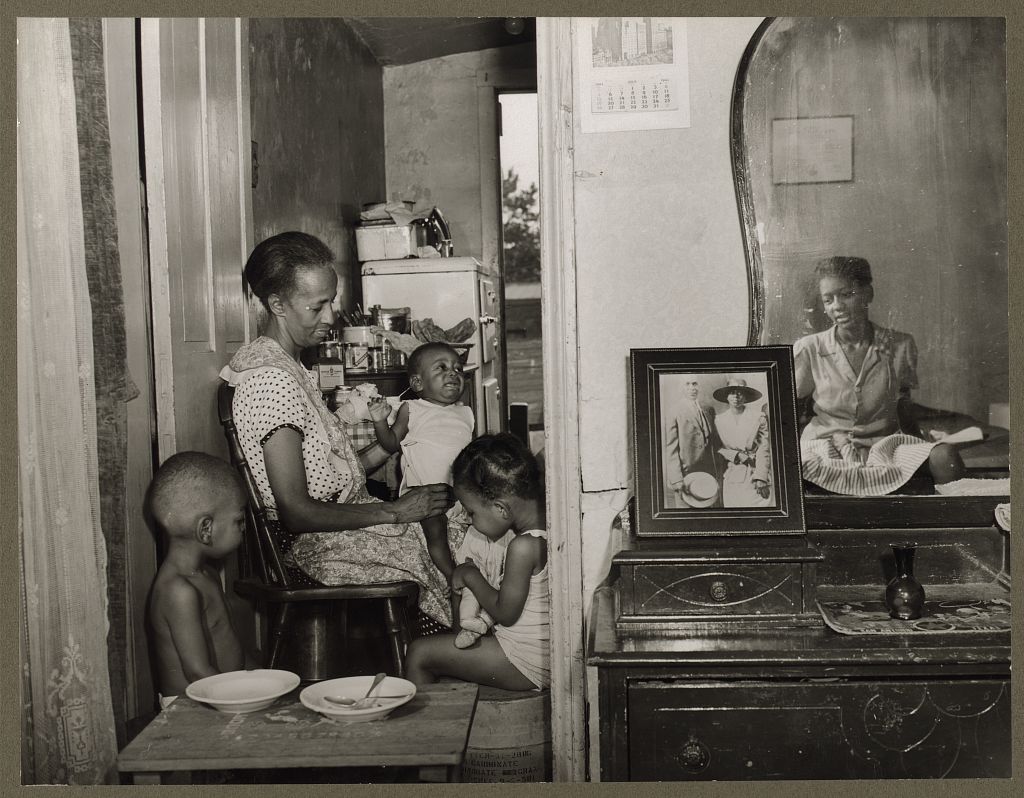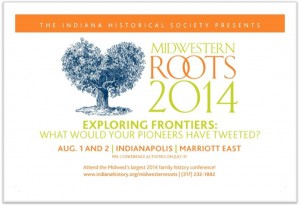by Lisa Cooke | Jan 6, 2014 | 01 What's New, Military, Oral History, Photographs
If your family has a history of military service, you want to better understand the experience of war, or you want to help preserve someone’s memories

American soliders in the Korean War. Fighting with the 2nd Inf. Div. north of the Chongchon River, Sfc. Major Cleveland, weapons squad leader, points out Communist-led North Korean position to his machine gun crew. November 20,1950. Pfc. James Cox. Wikimedia Commons Image.
of combat, you should check out Witness to War.
Witness to War aims to capture “the ‘foxhole view of combat as seen by the soldiers who experienced it.” They do oral history interviews with combat veterans, then preserve and share them through their website. They have already posted a lot of video interviews that are searchable by subject or name.
Their collection of photos, mostly snapshots taken by soldiers, is sobering and powerful. There are a lot of battlefield and other very stark images.
Do you know anyone whose memories should be included in this site? They are currently interviewing soldiers in the Atlanta and Washington, D.C. areas. All content they collect will be donated to the (US) Library of Congress Veterans History Project.
by Lisa Cooke | Feb 16, 2014 | 01 What's New, Adoption, Beginner, History

Mrs. Ella Watson, a government charwoman, with three grandchildren and her adopted daughter [reflected in the mirror]. Image from The Gordon Parks Archives in the Library of Congress.
Formal, legal adoption wasn’t common in the U.S. until the late 1800s. (State adoption laws didn’t even exist until after Massachusetts passed the first one in 1851.) Before that, if mom and dad couldn’t take care of a child, a relative, neighbor or friend took that child in, or the child was sent to a county orphanage or poor home. In even earlier days, orphaned or poverty-stricken children were also sold by their towns into indentures.
The Adoption History Project at the University of Oregon has a great timeline of adoption history in the U.S. Check it out to see what was going on when your family member was adopted.
To learn more about adoption and genealogy research, check out these links:
FamilySearch Wiki U.S. Adoption Research
All About Adoption Research by Maureen Taylor
RootsWeb’s Guide to Tracing Family Trees: Adoption
by Lisa Cooke | Feb 17, 2014
Join Lisa at an upcoming event near you! Genealogy conferences, seminars, workshops, webinars, and more! Lisa speaks to audiences all over the world with dynamic, education, and entertaining presentations on the hottest topics in genealogy. Be enthralled and inspired...
by Lisa Cooke | Mar 26, 2014 | 01 What's New, Conferences
I have roots in Indiana and have longed to travel to Hoosier state to conduct some much needed genealogy research. So you can imagine how happy I  was to be invited to keynote at the upcoming Midwestern Roots 2014: Family History and Genealogy Conference being held August 1 and 2, 2014, Indianapolis, IN, at the Indianapolis Marriott East.
was to be invited to keynote at the upcoming Midwestern Roots 2014: Family History and Genealogy Conference being held August 1 and 2, 2014, Indianapolis, IN, at the Indianapolis Marriott East.
This year’s theme is a timely one: Exploring Frontiers: What Would Your Pioneers Have Tweeted? This conference promises to be a glorious melding of old and new with deep history sessions and the latest technology.
Here’s the scoop on the Midwestern Roots Conference:
Registration Opens March 26 with a $99 registration special price March 26-29, 2014.
Includes the two day conference and lunches.
Additional fee for banquet and some pre-conference activities.
Register online at www.indianahistory.org/midwesternroots or
call (317) 232-1882 from 10 a.m.-5 p.m. Thursday through Saturday during the special offer.
The Midwestern Roots 2014 Conference is your chance to get updated on the latest technology changes in family history research, resources and methodology, and I’ll be exploring that in my keynote Future Technology and Genealogy: 5 Strategies You Need. You’ll also experience:
• More than 30 stimulating lectures from nationally known speakers Warren Bittner, Lisa Louise Cooke, Joan Hostetler, Amy Johnson Crow, Thomas MacEntee, James H. Madison, Anne Gillespie Mitchell, Daniel S. Poffenberger, Curt B. Witcher and more
• The Great Google Earth Game Show presented by Lisa Louise Cooke (this will be an interactive, FUN, outside the box kind of session topped off with prizes!)
• Hoosiers and A New History for the Twenty-First Century presented by James H. Madison
• A Guided Tour of Ancestry computer lab taught by Amy Johnson Crow and Anne Gillespie Mitchell from Ancestry.com
• Genealogy Resources Library Workshop
• Writing, document preservation and photo preservation workshops
• Family History Market and Book Fair – open to the public
See you at the Midwestern Roots 2014 Conference!
by Diahan Southard | Jul 24, 2014 | 01 What's New, Beginner, Newspaper
 Recently I decided to learn more about my great-uncle Paul McClellan, my grandfather’s brother. After World War II, Paul left his Idaho hometown for Pennsylvania. Surviving relatives know hardly anything of his life or family.
Recently I decided to learn more about my great-uncle Paul McClellan, my grandfather’s brother. After World War II, Paul left his Idaho hometown for Pennsylvania. Surviving relatives know hardly anything of his life or family.
The census only takes me through 1940 and he lived through the 1970s. Pennsylvania vital records are pretty tight-lipped. So almost immediately, I found myself looking for obituaries.
Our online community tree at FamilySearch told me when and where he died. I emailed the local history and genealogy contact at the public library in that town. I heard back within a day and had this obituary within a week.
I’ve seen a lot of detailed obituaries. But perhaps because I’m so thirsty for information on Paul, the level of detail in this obituary made me especially happy. I see his:
- Age
- Street address
- Hospital where he died and length of stay there
- Birthplace and age
- Parents’ names, including mother’s maiden name
- Employer and retirement date
- Membership in local civic organizations
- WWII Army veteran status
- Surviving widow’s name, including maiden name
- Names, spouses and residences of surviving siblings
- Name of funeral home and officiator of funeral
- Cemetery name
Wow! Some of these details confirmed that I had the right guy: his age, birth data, relatives’ names. Others open new avenues of research for me. I’ve already started following leads to the civic organizations, funeral home and cemetery.
You know, what is NOT said in this obituary may also prove important as I continue my research on Paul. First, there are no surviving children or grandchildren listed. This disappoints me as I was told he did have children by at least one previous marriage. If he did have children, the informant (his widow?) either didn’t know about them or didn’t choose to mention them. Second, the informant did know a lot about Paul’s kin. Maybe Paul and his wife didn’t totally lose touch with the folks back home–it just seems so years later.
Have you worked much with obituaries? Do you know how to find them? Learn more in Lisa’s book How to Find Your Family History in Newspapers, available in print or as an e-book. There’s an entire chapter on online digitized newspaper collections, and one on online resources for finding newspapers (either online or offline). Yet another chapter is devoted to African American newspapers. This book will teach you to find all those elusive obituaries–and plenty more mentions of your family in old newspapers.



 was to be invited to keynote at the upcoming Midwestern Roots 2014: Family History and Genealogy Conference being held August 1 and 2, 2014, Indianapolis, IN, at the Indianapolis Marriott East.
was to be invited to keynote at the upcoming Midwestern Roots 2014: Family History and Genealogy Conference being held August 1 and 2, 2014, Indianapolis, IN, at the Indianapolis Marriott East.